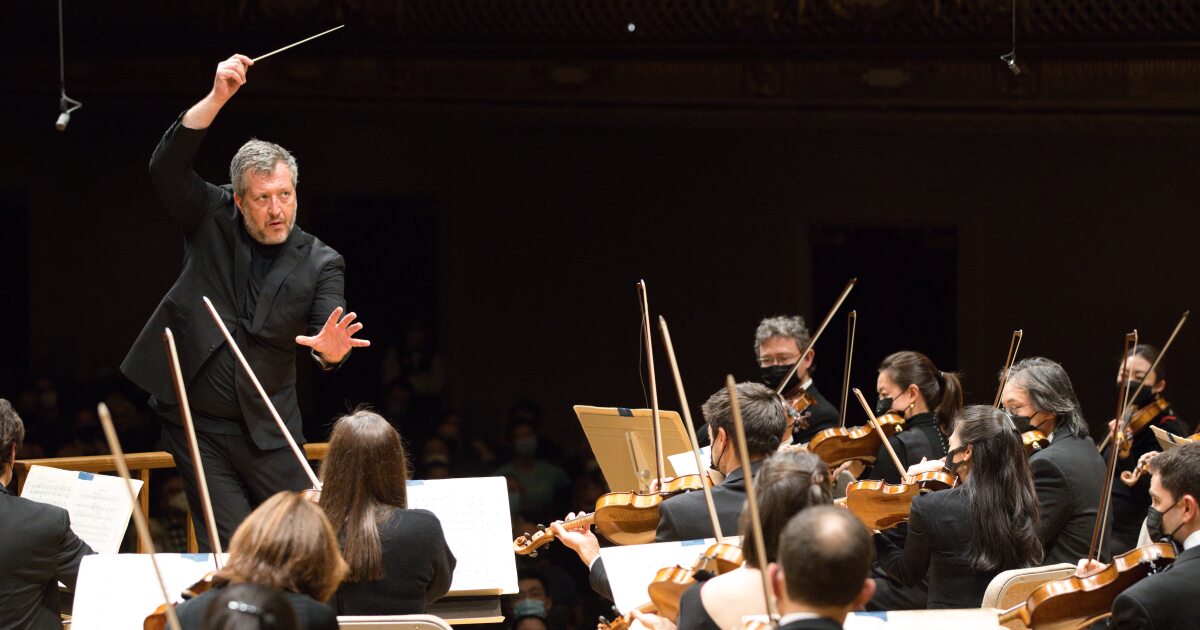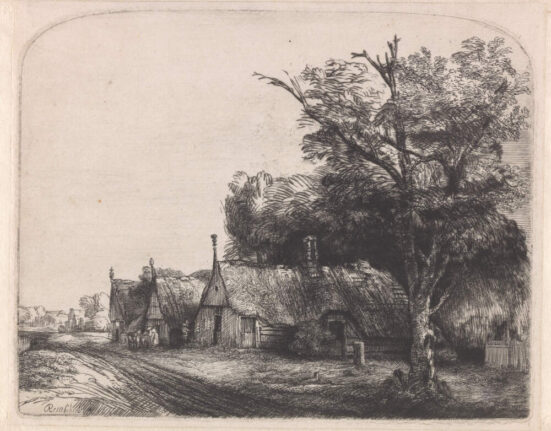This year, the Boston Symphony Orchestra is celebrating the 100th birthday of the late György Ligeti, one of the 20th century’s most influential and legendary composers. As part of the festivities, the BSO will be performing a free concert series this week, highlighting Ligeti’s innovation and musical impact. Among those conducting and performing the Ligeti 100 Festival is acclaimed British composer, pianist and former BSO artistic partner Thomas Adès. GBH’s All Things Considered host Arun Rath spoke with Adès about how Ligeti inspired him. What follows is a lightly edited transcript.
Arun Rath: I’m a huge fan of your work and also of Ligeti. He was the first contemporary composer I fell in love with. Do you think that’s a common experience?
Thomas Adès: Yes, I do. I can identify with that. I first heard his music also as a teenager and I suppose the first thing was the works from “2001” by [Stanley] Kubrick. After that, I got to know his work at the same time as his compatriot [György] Kurtág and learned them together.
Ligeti was, I suppose, the more fun one, the more alluring one. That’s grown actually with me, because I think his music, as avant-garde music goes, it’s much more fun and enjoyable than many of the works that came out of the same period by other composers in the ’50s and ’60s.
Rath: A lot of it is really more accessible. You mentioned that music from “2001”, which is I think it’s called “Atmospheres”, but this vocal piece that gives you a sense of the infinite.
Adès: In the “Requiem” as well there’s these effects of all that sounds, like millions of people singing. I think he did have a perspective that was much more like the infinite than before, because you have to remember, this is the time of space travel, the earliest space exploration, and that does, I think, inform his music.
The other thing is that he was born in Transylvania, a very special part of the world, where music was an enormous part of the community. It’s quite a rural place, and it drew everyone together. You’d come into the villages and everyone would take part. It was universal. It united communities but it also was very important for their virtuosity of playing. Brilliant violinists, brilliant clarinetists that you hear with very traditional communities. That was actually in [Ligeti’s] background. So it’s tradition, but it’s also very much about the present and what’s happening right then. You can feel it very physically and I think that he actually led into it, and it informed the music that he ended up writing. This was probably the leading avant-garde composer of his generation.
Rath: And it’s frequently in conventional forms. You mentioned the “Requiem” and various liturgical music, and you’ll be part of performing the “Piano Concerto”. Tell us about that, because the phrase piano concerto just doesn’t quite do this work justice.
Adès: I remember how startling it was when it came out and I was still in high school. Even then, to have a piece called “Piano Concerto” by Ligeti, I thought, “Gosh, he’s going back to classicism. There’s some kind of big step backwards.” Then of course you heard it and it sounded like nothing before or since. It’s so brilliant and so exciting to the ear, and it doesn’t at all have a traditional form. It has a form that he invented and used again, with five movements: fast, slow, fast, slow, fast… very effective.
It uses [African] traditions. He was fascinated by African music at this time. He had just heard it and I think it really, as it were, blew his mind with the polyrhythms they could play. So, he pushes that very far in this piece and it has this unique, wonderful, brittle, brightly colored sound all the way through. I suppose he takes these traditional things, and there are Western traditions in there as well, with lamento, these descending beautiful lines. It becomes almost like he analyzes it so intensely that it almost breaks up into a parody of itself. That’s where it becomes, at the same time, expressive and very funny.
Rath: How do you conduct a work like that? It seems like juggling. It’s just mind spinning.
Adès: Well, the top secret is that all the hard work is done by the players who’ve been very clever. I just have to concentrate and be like a metronome. It’s all done by the brilliant players. Kirill Gerstein and the Boston Symphony Orchestra will be doing all the heavy lifting.
Rath: You have a very distinguished career as a composer. I’m curious how you would say, or if you would say, Ligeti’s music has influenced you as a composer?
Adès: I wouldn’t try to deny it. I think it was almost inevitable, when you have an artist like that who redefines everything about the art form, everything that he does with such extraordinary results. I would say if that is the case, I feel that Ligeti himself was very open about the influences on his own music, immediate influences like the generation before. [Béla] Bartók is a very clear influence on Ligeti. It’s not something he tried to hide. It was celebrated. Then you go back through Bartók and you arrive very quickly at [Franz] Liszt, who we were also performing in this program. There’s a really clear, direct line there. So, if I’m lucky enough to have learned anything from any of these people, I’m not at all ashamed to admit it.
Rath: Did you ever have contact with him while he was alive?
Adès: Literally hello. I was in the same room once and said “hello,” that’s all.
Rath: This weekend is also going to feature the American premiere of your work. It’s songs for mezzo-soprano and ensemble. You have to say the name for me.
Adès: “Növények.” It simply means “plants” in Hungarian. It’s a nice word because it actually refers to things that grow rather than things that are planted in the ground as it does in English. There’s a string piece by Ligeti called “Ramifications”, which is a little bit closer to the sounds.
With “Növények,” there’s seven songs in Hungarian, all of which are about plants, but truly about the human condition and everything. Also there’s Katalin Károlyi, who’s coming over to sing the songs I wrote. Ligeti’s last work for singers is a wonderful piece called “Síppal, dobbal, nádihegedüvel,” which has the pipes, drums and cymbals, is a work that he wrote for her. So, it’s an enormous joy for me to be able to work with this great singer and bring her to Boston for this premiere.
Rath: It feels like we’re carrying on with an Eastern European feel, these Hungarian songs.
Adès: Oh, yes. The poems are all originally in Hungarian, and obviously Katalin will be singing in Hungarian. It started with one which is called “Root” in English. It’s an extraordinary poem. When I wrote that during the period of the COVID pandemic, it was a time when we couldn’t all be in one place. So, the piece was written for Katalin in Budapest, myself playing piano in London, and a great Mexican percussionist in Mexico City. We recorded it that way, but then I expanded this four-string sextet with piano and then added another six songs also in Hungarian about plants to make the set.
Rath: Thomas Adès, It has been such a pleasure talking with you. I know you’re extremely busy, so we’re very lucky to get this time with you. Thank you so much.
Adès: Such a pleasure.
The Boston Symphony Orchestra’s Ligeti 100 Performances runs November 12 through 19.






